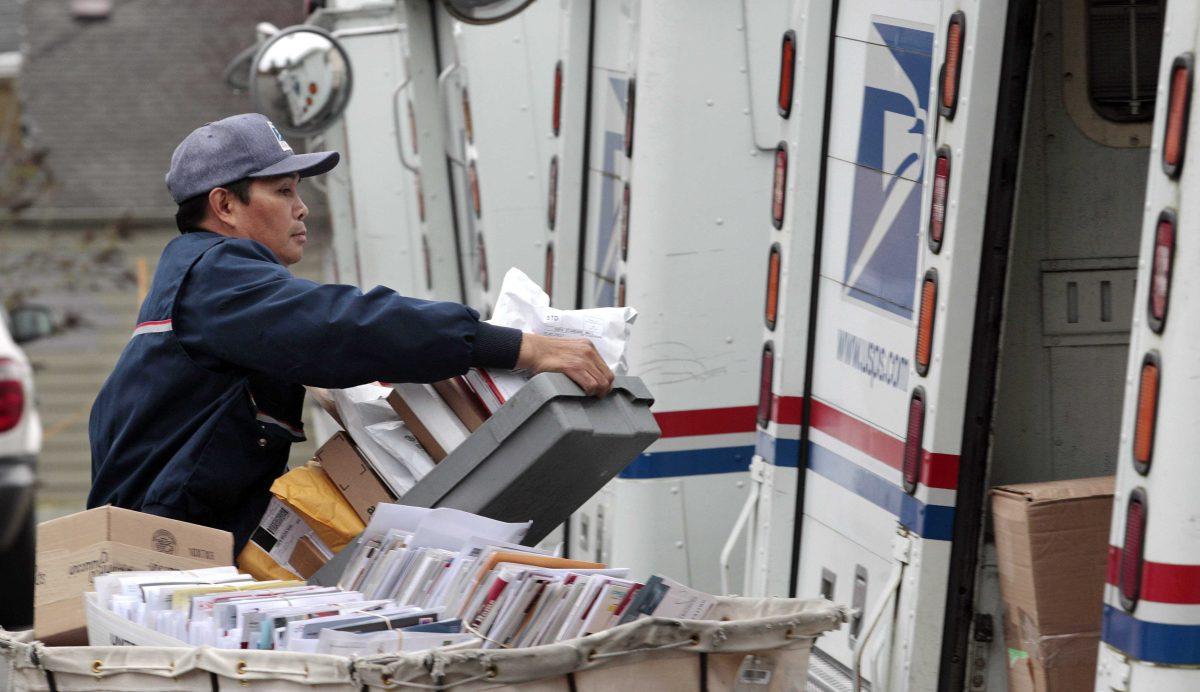The United States Postal Service has operated non-stop for more than 200 years. For much of those two centuries, the post office was unrivaled in reliability, speed and efficiency.
But the advent of the digital age — specifically, the rise of email — has changed all that. The once-ubiquitous post office is now in a budgetary free fall as the centuries-old establishment struggles to find its place in the digital age.
The most recent proposed cutback of the USPS’s $70 billion annual budget hopes to eliminate door-to-door delivery, the service where the postman gets out of his car to deliver mail to doorsteps.
Why physical mail has lost so much ground to email is obvious: Email is faster and more secure, flexible, efficient and convenient than physical mail.
Not only does physical post fail to reach the quality of service that email provides, but its continued existence actually hurts lower-income families.
Everyone who is able to use email already does. This includes employers, many of whom exclusively use email for applications and communication.
Families without a computer or internet are then forced to use physical mail or a public access computer. This creates a self-perpetuating class divide in which lower-income families have a harder time applying for jobs and being competitive in the job market.
The postal service has reached the end of its usable life, and the time to end the postal service as we know it is drawing near. Ending the USPS will free up billions of government dollars to be used more efficiently elsewhere.
Though before this happens, there are a few things that need to be changed.
First, we need to make sure that everyone can access email easily and cheaply. USPS serves the entire nation, so any replacement would have to have the same coverage. It would also need to have around the same price for the end consumer.
In order to send and receive email, a person needs four things: a computer, electricity, internet service and an email provider. Providing computers would be easy; a basic netbook can cost less than $100. This price is comparable to that of installing a mailbox.
Electricity is also a non-issue. Since 1956, more than 99 percent of American homes have been wired for electricity, and the cost of electricity to run an efficient netbook is negligible.
The last two requirements — internet access and email providers — are the tricky ones.
According to The Huffington Post, about 20 percent of American households have no internet access at all. Removing the postal service would essentially cut off communication to one-fifth of the country.
The only solution would be providing the entire country with internet service. This is a big step indeed, but about as feasible as running electricity to the entire country – a feat America accomplished in the 1950s.
Dense areas like cities are already experimenting with free, city-wide Wi-Fi networks. Rural areas are too spread out for Wi-Fi to be practical, so a direct line would have to be run to each household, which is no more difficult than running a power line.
The last requirement is email providers. While there are already a wide choice of free email providers, they are all linked to private corporations. Citizens should not be forced to rely upon private corporations for a basic service such as mail, so a public option would have to be supplied. Although in light of the allegations of NSA spying, many may still opt for a private email provider over a public one.
Switching from physical mail to email would be more efficient in the long run, but there would also be other benefits.
Each person in the U.S. would have their own personal email address that does not change throughout their lifetime. This would benefit those without a physical address, such as homeless people or students living in dorms. Households would no longer have to share a physical address — each member could have their own electronic one.
Individuals who rent or move often would not have to update their contact information every time they move. Citizens who travel frequently or for long periods of time could send and receive mail as if they were at home.
Email is objectively superior in almost every way, and the continued existence of the dinosaur that is physical mail is a detriment to the nation. The sooner we start to make the switch, the better.
Robert Klare is a 22-year-old engineering senior from New Orleans.
Opinion: Government needs to eliminate USPS, switch to email
By Robert Klare
July 29, 2013
FILE – This Dec. 5, 2011 file photo shows letter carrier Diosdado Gabnat moving boxes of mail into his truck to begin delivery at a post office in Seattle. Americans for generations have come to depend on door-to-door mail delivery. It’s about as American as apple pie. But with the Postal Service facing billions of dollars in annual losses, the long-cherished delivery service could be virtually phased-out by 2022 under a proposal a House panel was considering Wednesday. Curbside delivery, which includes deliveries to mailboxes at the end of driveways, and cluster box delivery would replace letter carriers slipping mail into front-door boxes. (AP Photo/Elaine Thompson, File)





